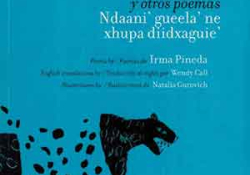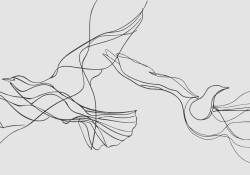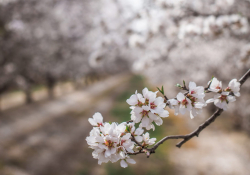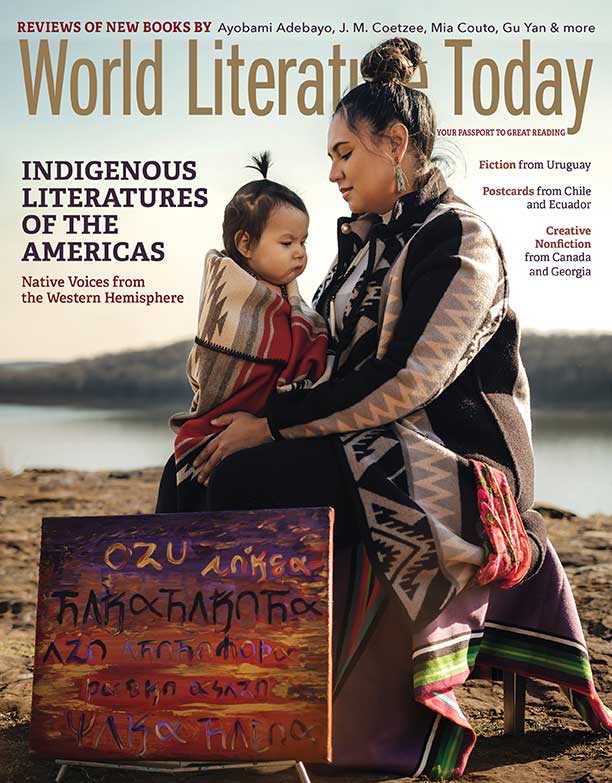Two Poems from Didxazá
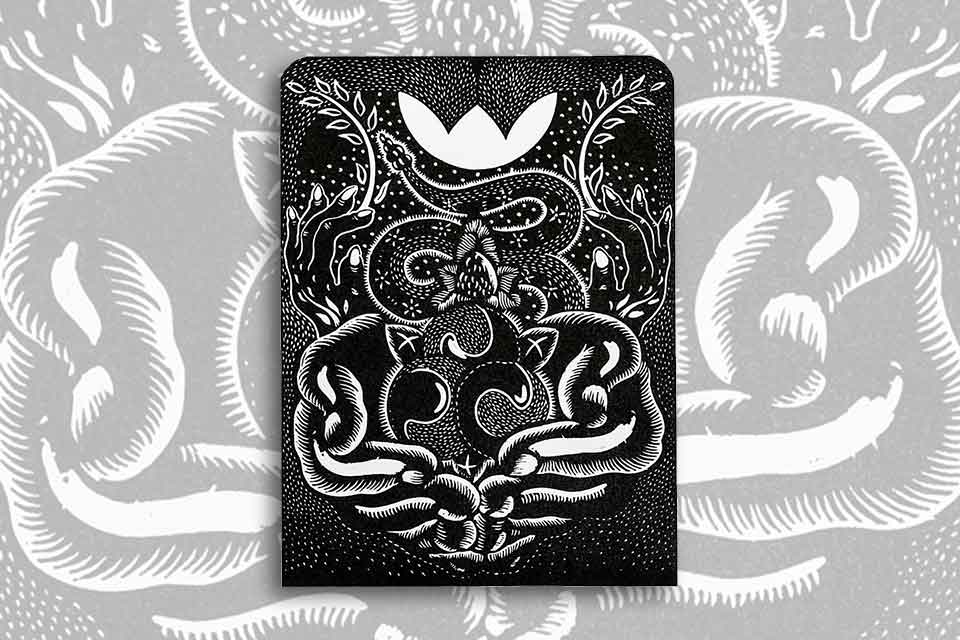
[Dxapahuiini’ lu té]
Dxapahuiini’ lu té
Dxapahuiini’ cá dxiibi’ guié lu
Dxapahuiini’ ni biniti guendaruxidxi lade yoo
Bidii naa guiladxe’ dxiibi ladilu’
Lulu’ zundube’ nisadxu’ni xuba’
Guie’ daana’ niza sti’ gue’tu’
saguibe’ dechelu’
ti gué binniguenda cayati nisa
binniguenda daguyoo lu guidxilayú di’
Bidii naa gutiidena’ya’ ique lagalu’
ti qui chu’ dxi guibigueta’ dxiibi’ luguialu’
Ti dxita bere zutiide ladilu’
ra cá guiapa’ xtuxu bezalú ni cayuniná lii
Ti guiiñayaa xhube’ ndaani’ xiganalu’
ti guiana guendaruuyadxi ne bi dxaba’
gacaladxi’ guicá luguialu’
[Niña de pálido rostro]
Niña de pálido rostro
Niña que trae el espanto grabado en la piedra de sus ojos
Niña que perdió su sonrisa en los callejones oscuros
Déjame correr el miedo de tu cuerpo
Sobre tu rostro soplaré el anisado
El cordoncillo agua de los muertos
en tu espalda sacudiré
para dar de beber al sediento espíritu
que atrapado en este mundo permanece
Deja que mis manos acaricien tus párpados
para que nunca más se instale el miedo en ti
Un huevo de gallina recorrerá tu cuerpo
y en él se guardarán los ojos que te dañan
Un chile verde frotaré en la jícara de tus manos
así arderán las miradas con aire de maldad
que sobre ti se quieran posar
[Girl with a face so pale]
Girl with a face so pale
Girl with fear engraved on her onyx eyes
Girl who lost her smile in dark alleyways
Let me chase the fear from your body
I will bathe your face with anisado
I will sweep your back with sprigs
of spiked pepper quenching the thirst
of the greedy ghost haunting you
still trapped in our world
Let my hands caress your eyelids
to wipe away your fear forever
I will pass this egg over your body
to blunt the sharpness of the evil eye
I will rub a green chile in your cupped palms
to burn away any evil thoughts
that might fall upon you
* * *
[Rari’ nga guixalenu]
Rari’ nga guixalenu
Ladilu’ zabigueta ndaani’ guidxilayú
Cusaanadu lii ra yooba’
Rari’ zaziila’dxilu’
Lu gadxe gubidxa zeda ganadu lii
ziupanedu guie’ daana’
ne guie’ nayeche’
Zedanenu nisa ne gui’ri’
Západu guendabiaani’
ni gudxigueta’ laadu ra nuulu’
[Esta es la hora del adiós]
Esta es la hora del adiós
Tu cuerpo material vuelve a la tierra
Te dejamos en el yooba’
Aquí descansarás
Cada séptimo día te visitaremos
vendremos con cordoncillos
y flores alegres
Traeremos agua y veladoras
Tendremos memoria
para volver siempre a ti
[This is the hour for goodbyes]
This is the hour for goodbyes
Your physical body returns to the earth
We leave you in the house of the dead
So you may rest
Every seventh day we will visit
bringing you sprigs of spiked pepper
and vibrant flowers
We will bring water and candles
We will guard your memory
and return to you always
Translations from the Didxazá & Spanish
Translator’s Note
by Wendy Call
These two poems are part of an unpublished manuscript by Irma Pineda, a Binnizá (Isthmus Zapotec) poet in southern Mexico who has published ten collections of bilingual Didxazá (Isthmus Zapotec)-Spanish poetry. This manuscript, Ti guianda ti guenda / Para sanar un alma (To heal the soul), is inspired by the wisdom, knowledge, and experiences of midwives and traditional healers in Pineda’s home community. These poems document and celebrate traditional Isthmus Zapotec healing practices that are in danger of being lost.
Irma Pineda and I have collaborated since 2008 to bring her poetry into English. A neighbor of mine in Seattle, who is from Pineda’s home community, had asked me a year earlier to translate a few of her poems. Those poems stayed with me long after I completed the translation, and so I wrote to Pineda to ask her whether I might translate more of her work. Six weeks after I wrote to her, a well-traveled envelope arrived in my mailbox, containing four of her books and a warm note encouraging me to translate and seek publication of whatever I wished. Since then, I’ve translated and published in English nearly all the poems contained in those books, working directly with Pineda both virtually and in person.
Pineda shared the manuscript for Ti guianda ti guenda / Para sanar un alma with me while she was still drafting it. The theme of healing—both physical and spiritual—weaves through every page of the book. The book’s forty-nine untitled poems form a sort of collective auto-ethnography, braiding together Pineda’s own experiences with information she has gathered about historical, traditional treatments as well as references to illness and healing in Zapotec history and literature.
In the first poem that appears here, with the first line “Girl with a face so pale,” Pineda tells in third person the story of a childhood experience. The poet was three years old when her father, a well-known teacher and Indigenous-rights activist, Victor “Yodo” Pineda, was forcibly disappeared. In the aftermath of that awful trauma, young Irma experienced a range of physical illnesses. One of them was dxiibi’ or espanto—a serious illness caused by deep shock or fear. A case of dxiibi’ is described here from the point of view of the curandera (traditional healer) who performed the limpia, or spiritual cleansing. The illness is caused by a binniguenda cayati nisa, “a thirsty ghost,” who is also a binniguenda daguyoo, “a ghost trapped in the house” of the living. This deceased person is “still trapped in our world,” Pineda explains, because of something important left unresolved in the person’s life.
With every line that I translate of Pineda’s bilingual poetry, I have the choice between following the Zapotec or the Spanish versions most closely. Occasionally, I diverge slightly from both. For example, the word for “eye” in Isthmus Zapotec is guié lu—“stone of the face”—which Pineda brought into her Spanish version as “piedra de sus ojos” or “stone of her eyes.” I, in turn, translated the term into English as “her onyx eyes.”
In the second poem, which begins “This is the hour for goodbyes,” the deceased person has finally been able to leave the realm of the living and travel to their final resting place. Unlike Pineda’s family members, who have lived forty-five years without knowing what happened to the poet’s father, Victor Pineda, the mourners of the deceased person in this poem are able to visit the cemetery, “the house of the dead,” every Sunday. They bring as an offering the same boughs of spiked pepper (cordoncillo or guie’ daana’) that are mentioned in the first poem, as part of the limpia treatment. They also bring water, so the person’s spirit will never be thirsty, and candles to light the spirit’s way through the inner world—the realm of the Zapotec afterlife.
Both the poet, Irma Pineda, and my Isthmus Zapotec teacher, Friddamir Romero, shared their time, expertise, and patience with me as I translated these poems. Their generosity is an enormous gift. Pineda devotes much time and energy to helping me translate her work into English because, she says, “Translation doesn’t only allow us to build bridges between one language and another. For Indigenous communities like mine, it is fundamental, because the translation process opens a window for us to see into other worlds. In addition, other cultures can learn a bit about our Indigenous communities. I believe this is a way to make them more sensitive and begin to address discrimination and racism.”
In the fifteen years since I received that battered envelope from Pineda with her first four books, she has published another seven books of bilingual Zapotec-Spanish poetry. I have translated at least a few poems from each of those seven books into English. The next collection of her trilingual Isthmus Zapotec–Spanish–English poetry, Nostalgia Doesn’t Flow Away Like Riverwater, will be published by Deep Vellum in January 2024. Meanwhile, I am seeking a publisher for English editions of two more of her books, including the one that contains these two poems, To Heal the Soul.


